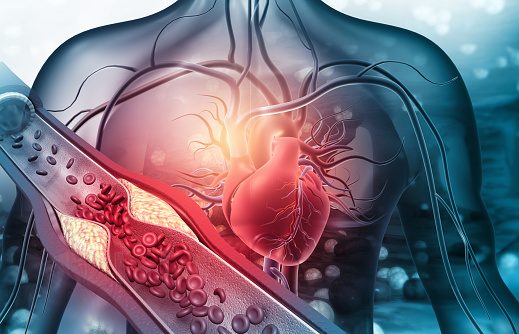Erectile dysfunction and Cardiovascular disease
Erectile dysfunction — the inability to get and keep an erection firm enough for sex — can be an early warning sign of current or future heart problems. Likewise, if you have heart disease, getting the right treatment might help with erectile dysfunction. Understand the connection and what you can do about it.

An erection happens when stimulation triggers nerve signals to the blood vessels in the penis. Cells that line the blood vessels, called endothelial cells, respond by producing nitric oxide. This causes the blood vessels to dilate and allow a sufficient amount of blood to flow into the penis to produce an erection. When the endothelial cells that line the arteries are damaged by factors like diabetes, hypertension, or smoking, the blood vessel loses its elasticity and blood flow is impaired. The result is a progressive decline in a man’s ability to attain and maintain a rigid erection. Endothelial dysfunction is also the first step in the buildup of cholesterol plaque in the coronary arteries and is the link between ED and cardiovascular disease.
Studies linking erectile dysfunction with cardiovascular risk show the strongest association with younger men in their 40s and 50s. These men may not have any symptoms like shortness of breath or chest pain when they exert themselves and may not think that they are at risk. Men presenting with ED should have an assessment of the common risks for cardiovascular disease like high blood pressure, elevated cholesterol levels, diabetes, and smoking. This information can be used to estimate their risk of a cardiovascular event, and if their risk is elevated, they should have additional testing. A test called a coronary artery calcium score can be performed to detect the buildup of cholesterol plaque in the blood vessels in the heart before it has progressed enough to cause symptoms. If cholesterol plaque is present, men can adopt healthy lifestyle changes to stop the progression of the problem. If the cholesterol plaque is extensive, men should be evaluated by a cardiologist and management may include the addition of medication like a statin or aspirin.
The association between erectile dysfunction and cardiovascular risk is also seen in men with diabetes and in men with pre-existing cardiovascular disease. These men should also be routinely screened for changes in sexual function.

What are the risk factors?
Besides sharing a common disease process, erectile dysfunction and heart disease also share many risk factors, including:
- Diabetes. Men who have diabetes are at high risk of erectile dysfunction and heart disease.
- Tobacco use. Smoking increases your risk of developing vascular disease and can cause erectile dysfunction.
- Alcohol use. Drinking too much alcohol can cause heart disease and might contribute to other causes of heart disease, such as high blood pressure or abnormal cholesterol. Alcohol also impairs erections.
- High blood pressure. Over time, high blood pressure damages the lining of your arteries and accelerates the process of vascular disease. Certain high blood pressure medications, such as thiazide diuretics, can also affect sexual function.
- High cholesterol. A high level of low-density lipoprotein (LDL, or “bad”) cholesterol can lead to atherosclerosis.
- Age. As you get older, erections might take longer to develop and might not be as firm. The younger you are, the more likely that erectile dysfunction signals a risk of heart disease. Men younger than 50 are at especially high risk.
- Obesity. Excess weight typically worsens other risk factors for heart disease.
- Low testosterone. Men with low testosterone have higher rates of erectile dysfunction and cardiovascular disease than do men with normal testosterone levels.

What can I do to lower my risks for developing ED and cardiovascular disease?
Eating a healthy diet, losing weight, exercising regularly and not smoking are some of the steps you can take to protect against cardiovascular disease and maintain your sexual health. But we recognize that making these lifestyle changes is not always easy. That is why we offer a team-based approach to care at the Men’s Wellness Clinic. We can connect you to the resources and support you need to make lasting lifestyle changes.
But not every patient needs to make major changes to address their ED and heart health. For some, the solution may be as simple as optimizing their blood pressure medication. That is why we encourage you to seek help if you are struggling with ED.

Care at Vigor
At Vigor Men’s Pelvic Health Centre, our team includes specialists with advanced training in Erectile Dysfunction. They focus on diagnosing and treating erectile dysfunction, bringing extensive experience to patients who have previously undergone unsuccessful treatments.
Advanced Diagnosis and Treatment
Our researchers are dedicated to enhancing the diagnosis and treatment of erectile dysfunction. We are actively investigating the effectiveness of different exercises and protocols to effectively treat erectile dysfunction issues.
Location
We are located at Mid Valley Kuala Lumpur:
Vigor Men’s Pelvic Health Centre
Unit 1-10, Level 10, Boulevard 1&3,
Mid Valley City, Lingkaran Syed Putra,
59200, Kuala Lumpur,
Malaysia.
